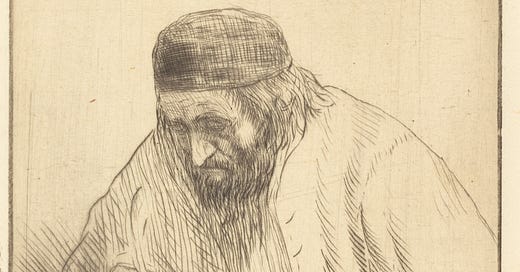Bad writing advice #1: Don't write every day
Advice from a writer who has no business telling you what to do
If you’ve ever had the inkling to write (pun intended), I hope you try it.
Since I put my foot down, took a course, and decided writing was going to be something I try to be good at, I’ve learned a few things, read some books, studied some masters, and gotten stuck in a few places.
Here’s something I’ve learned:
Don’t write everyday
At 6 a.m. one morning, I got up to write, stood in the kitchen while the coffee brewed, felt the sledgehammer that is coming out of sleep in the middle of an REM cycle, and decided to go back to bed. I’ll get ‘em tomorrow.
I didn’t. Or the next day.
A few nights later, I was anxious: “I’ll never be a great writer because I don’t have the discipline.” I’d flipped to trying to write at night but by the end of the day, my mind was more pumpkin than creative.
My wife could see that I was anxious. OK, she couldn’t see it, she heard it because I wouldn’t shut up about it.
“When I hear you talk about writing like this, it just sounds stressful,” she said.
“Well it takes work, I need to write every day,” I said. That’s what I’d read in most books: in On Writing, Stephen King said he writes 2,000 words every day, and that’s what it takes. Jack London wrote 1,500. Hemingway got 500 down between sips of booze.
And I had to do this while also trying to work a full-time job, exercise, be a dad, be a husband, have friends, and read 70-100 books a year because, oh yeah that’s the other thing I have to do is read a lot.
If I can’t do that, well, I don’t have what it takes to be great at this or make a living doing it. And every day that goes by is another day I’m falling behind. I’m 32, the same age J.K. Rowling published Harry Potter and the Sorcerer’s Stone.
Cormac McCarthy was an amazing writer. He won numerous awards, published dozens of books and is regarded as one of the greatest of his genration. I recently read All the Pretty Horses and I get it. The guy can spin a sentence:
He thought that in the beauty of the world were hid a secret. He thought that the world’s heart beat at some terrible cost and that the world’s pain and its beauty moved in a relationship of diverging equity and that in this headlong deficit the blood of multitudes might ultimately be exacted for the vision of a single flower.
Cormac’s first wife left him because he wouldn’t help care for their infant son, wouldn’t do chores, and asked her to get a job so he could write novels while they lived in a shack with no heat and no water in the mountains in Sevier County, Tennessee not far from where I love.
She left him and moved to Wyoming. 1
“I just want you to enjoy this gift you have,” my wife said.
J.R.R. Tolkien didn’t write every day, he was a tenured professor, father, husband, friend, and procrastinator who liked playing solitaire to keep from having to work. He wrote some pretty good stuff.
I write a lot of days. Not all of them, sometimes not most of them — there are gaps in-between. And that says nothing about me as a writer.
Some days, “the muse” descends, it flows and I wrap up things rather quickly. Other days, it doesn’t and I read Harry Potter. And still other days, I never get to my desk because I’m out doing all the real life things that give me something to write.
But I enjoy writing, my wife hasn’t moved to Wyoming, and I don’t have to get up early in the morning.
It works for me.
https://www.legacy.com/us/obituaries/bakersfield/name/lee-mccarthy-obituary?n=lee-mccarthy&pid=125527543. My source for this story is his first wife’s obituary; she may not have been fair to him. But this was her memory of him and that’s worth noting.
Today’s art comes from Alphonse Legros. He was a French-British craftsman who painted, sculpted, medalmaker, and etcher. He was an important figure in the etching revival in printmaking from 1850 to 1930.





